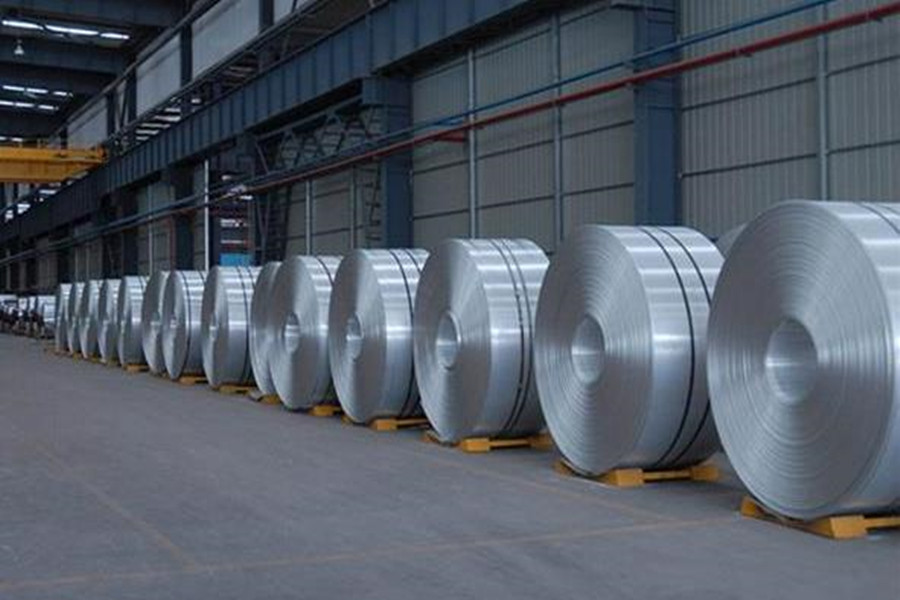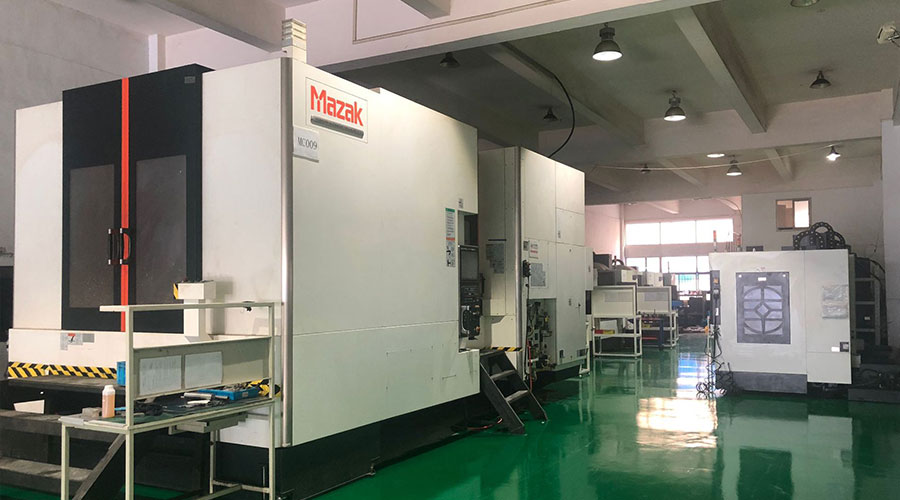The price of aluminum in the London market hit US$3,000 per ton for the first time in 13 years, as the market expects that supply disruptions will continue to exist and demand will continue to rise. Aluminum prices have risen by about 14% in the past three weeks, because from Guinea bauxite, Jamaican alumina smelting, to aluminum smelting in China and other regions, the supply risks of the entire industry are rising.
In the A-share market, Shenzhen Xinxing’s daily limit, China Aluminum and Yunlu shares soared by more than 7%, Nanshan Aluminum and Tianshan Aluminum rose by more than 4%, and Yunhai Metal and Jiaozuo Wanfang followed the rise. In the Hong Kong stock market, Chalco rose 9.45%, its share price hit a four-year high, and Rusal rose 6.69%.
The sharp rise in the aluminum sector is related to today’s record high aluminum prices. Shanghai Aluminum’s main contract has soared again today, and now it has soared by nearly 4% to 23,500 yuan/ton, which continues to set a new high since 2006. The Shanghai Aluminum Index shows that its historical high is 24,641 yuan/ton in May 2006. In terms of international aluminum prices, Lun Aluminum once exceeded US$3,000/ton, a record high.

Since the low in April last year, the cumulative increase of Shanghai Aluminum’s main contract has exceeded 100%, and the cumulative increase of Lun Aluminum has also reached nearly 100%.
Aluminium prices have hit record highs, which directly drove the rise of the aluminum sector. At the same time, the aluminum concept sector rose by more than 130%. Especially in the past two months, the stock price trend has been steep, with a cumulative increase of nearly 50%.
In terms of individual stocks, China Aluminum, the leader of the domestic aluminum industry, has risen nearly 250% since its low in July last year. It has also risen fiercely in the last month, with an increase of more than 60%.
In addition to the global increase in the issuance of currencies since the epidemic, the bulk of commodities have risen to varying degrees, and the imbalance between supply and demand of aluminum futures has become more and more serious, which has become the culprit for the continuous high of aluminum prices. However, this has also benefited a number of aluminum stocks such as Aluminum Corporation of China, and they have enjoyed the dividends of this upward cycle.
Why is normal aluminum supply so difficult
On the news, the rise in aluminum stocks is related to the largest aluminum industry content conference in North America last Saturday. Manufacturers, consumers, traders, and shipping companies all agree that the supply chain issues that have triggered turbulence in the bulk commodity market and pushed aluminum prices to 13-year highs are unlikely to be alleviated in the short term.
Last week, a coup d’etat occurred in Guinea, a West African country, and the unstable local rectification situation aggravated the market’s panic about aluminum supply. It is reported that Guinea is the main producer of bauxite, and nearly half of the domestic aluminum imports come from Guinea. Last year, China imported a total of 111.587 million tons of bauxite, an increase of 10.9% year-on-year, of which imports from Guinea reached 52.6701 million tons, accounting for 47.2% of the total imports, an increase of 18.51% year-on-year.
In terms of foreign aluminum supply, in addition to the negative impact of the political situation of aluminum mining areas, repeated epidemics have also affected the operating rates of large foreign aluminum-producing countries such as Russia and Australia. In addition, the limited capacity of overseas shipping and rising freight rates have also become a major problem for overseas aluminum supply.
As of September 8, China’s import container index has exceeded 1,441.22 points, a year-on-year increase of more than 60%.
In terms of domestic aluminum supply, because aluminum is mainly refined by electrolytic aluminum, the shortage of electricity and the introduction of coal production restriction policies have also affected this part of the supply. Some provinces and cities have strictly implemented power curtailment policies to restrict production capacity, and rising coal prices are pushing up the cost of electrolytic aluminum for enterprises, causing related enterprises to reduce production capacity, which further causes tight supply.
On the demand side, the global economy began to gradually recover from the epidemic, and the demand for bulk commodities began to recover. As a basic industrial raw material, aluminum has a wide range of applications. The increase in demand for various products has driven up the price of aluminum. In addition, governments of various countries have successively launched fiscal stimulus plans to further increase the demand for bulk commodities in the market.
How long can the aluminum price bonus last?
As the leader of the domestic aluminum industry, Chalco’s performance in the first half of the year can be described as exhausting the dividends of rising aluminum prices. In the first half of the year, revenue was 120.736 billion yuan, a year-on-year increase of 43.6%, and net profit attributable to the parent was 3.075 billion yuan, a year-on-year increase of 8511.0%.
In terms of specific business, the primary aluminum business grew the most rapidly. Benefited from the soaring aluminum price, the year-on-year growth rate reached 42.29% in the first half of the year; pre-tax profit was 5.792 billion yuan, a substantial increase of 5.523 billion yuan from the 269 million yuan in the same period last year. Although the trading sector accounted for 81.8% of total revenue, the pre-tax profit of this part of the business only increased by 360 million yuan year-on-year.
In terms of the company’s gross profit margin, it was 6.38% in the first half of the year, an increase of 4.21 percentage points from the same period last year and the highest in the same period in the past five years.
In order to ensure the supply of aluminum raw materials, last year, Chalco invested in factories at home and abroad to expand production capacity. The Boffa bauxite project in Guinea was successfully completed and put into production, with a designed production capacity of 12 million tons; at the same time, the 2 million tons of alumina in the Fangchenggang project in Guangxi also started operation.
Regarding the sudden political situation in Guinea, Aluminum Corporation of China stated that all businesses including West Africa International Guinea are operating normally, and the company’s domestic bauxite stocks are sufficient. The situation in Guinea will have no impact on the Boffa project. However, this response did not calm the market’s sentiment about the tight aluminum supply, and still voted with feet, and Chalco’s share price continued to rise.
At the largest aluminum conference in North America on Saturday, many participants predicted that supply problems will continue to weigh on the market for most of 2022, and some even predicted that it may take up to five years to resolve the problem.
Last Sunday, maritime regulators from China, the United States, and the European Union convened the Global Shipping Regulatory Summit. Daniel Maffei, chairman of the US Federal Maritime Council, said that the abnormally high operation of shipping prices and container prices has aroused widespread concern from global regulators, legislators and the public.
CMA CGM, the world’s third-largest shipping company, began to respond and issued a statement stating that the freight rate of the futures cabinet will be until February 1, 2022 in winter. But today, shipping stocks still rose sharply. COSCO SHIPPING and Changhang Phoenix have their daily limit, and China Merchants Lines rose by more than 7%. It can be seen that the market is not optimistic about the tightness of shipping capacity and the cooling of freight rates in the future shipping market.
The news that the Suez Canal was blocked again last week has filled the market with pessimism. However, the turbulent political situation in Guinea and overseas epidemics have been ups and downs, and the supply of imported aluminum may remain tense in the future.
In terms of domestic supply, under the two major policies of “carbon neutrality” and “carbon peaking”, power supply will still have a period of pain, and the coal production limit policy will also affect the supply of raw materials required for electrolytic aluminum.
In terms of aluminum demand, although the real estate growth rate of major downstream applications has slowed down, the explosion of new energy vehicle demand has to a certain extent become a new growth engine for aluminum demand. Compared with the continued tension on the supply side, supply and demand are still in a serious imbalance.
As aluminum prices continue to rise, Wall Street has raised its forecasts for aluminum prices. Goldman Sachs said that the outlook for the global supply chain may deteriorate, and the price of Lun aluminum is expected to rise further, and the target price of Lun aluminum in the next 12 months is raised to US$3,200/ton.
Citibank predicts that in the next three months, Lun Aluminum may rise to US$2,900/ton, and the price of Lloyd Aluminum for 6-12 months may rise to US$3,100/ton, because aluminum prices will transition from a cyclical bull market to a structural one. Bull market. The average price of aluminum is expected to be US$2,475/ton in 2021 and US$3,010/ton in 2022.
So, what are the main factors that hinder the recovery of aluminum industry supply?
From the perspective of overseas aluminum supply, Cheng Xiaoyong, director of the Baocheng Futures Finance Research Institute, believes that the overseas epidemic has hindered the recovery of electrolytic aluminum output in countries including the United States, Australia, and Russia. In addition, high container freight and shipping bottlenecks are also a major problem hindering the export of electrolytic aluminum.
It is worth noting that Guinea suddenly “changed the sky” last week. Guinea is known as the “kingdom of bauxite.” Sun Weidong, a non-ferrous metals analyst at the Top Securities Derivatives Research Institute, told the Futures Daily reporter that Guinea has always been one of the main sources of China’s bauxite imports. The coup in Guinea has pushed up bauxite prices and costs. The rise has pushed up alumina prices. “In August, the domestic alumina price has risen sharply due to tight supply and massive reductions on the supply side. Since the beginning of August, it has risen by nearly 500 yuan/ton. It is expected that alumina prices will still have some room for upside in the future.”
From the perspective of domestic supply, the expansion of electrolytic aluminum production capacity is constrained, mainly in the two aspects of “lack of electricity” and “cutting carbon.” On the one hand, electricity curtailment measures in many provinces and municipalities have led to insufficient power for electrolytic aluminum enterprises to produce at full capacity; on the other hand, in 2021, carbon neutrality and carbon peaking will officially land, and the dual control of energy consumption will affect some aluminum smelting industries. The rising cost of electrolytic aluminum production has pushed the price of electrolytic aluminum to rise.
In the context of limited supply, the demand for aluminum continues to increase, especially the use of new energy has become a new growth point for aluminum consumption. It is understood that my country’s automobile industry is gradually shifting its focus to light weight. Calculated by bicycle consumption, in 2018, the new energy passenger car industry consumes a lot of aluminum. It is estimated that the aluminum consumption of passenger cars is 210 kg, and the aluminum consumption of hybrid buses is 179.6 kg. The aluminum consumption of BEV buses and ICE buses are 128.4 kg and 118.7 kg, respectively. However, compared with developed countries such as the United States and Japan, China’s automotive aluminum consumption still has a large gap.
However, according to statistics, the aluminum consumption of new energy vehicles in my country is increasing year by year. From January to July 2021, the production and sales of new energy vehicles in my country will reach 1.504 million and 1.478 million, exceeding the 1.366 million and 1.367 million in 2020. The annual production and sales volume reached a record high. Therefore, there is still a lot of room for growth in the aluminum demand for new energy vehicles in the future.
In this transitional period of energy structure, the global production factors caused by the superimposed epidemic cannot circulate freely. Whether it is coal flying, lithium is spreading all over the world, or aluminum prices soaring, it is not the simple upward cycle that can explain it. . The leading resource stocks in it, such as Aluminum Corporation of China, have eaten up all the dividends and may continue to eat them in the future.
Link to this article: Aluminum prices have hit a new high again!
Reprint Statement: If there are no special instructions, all articles on this site are original. Please indicate the source for reprinting:https://www.cncmachiningptj.com/,thanks!
 PTJ® provides a full range of Custom Precision cnc machining china services.ISO 9001:2015 &AS-9100 certified. 3, 4 and 5-axis rapid precision CNC machining services including milling, sheet metal to customer specifications,Capable of metal & plastic machined parts with +/-0.005 mm tolerance.Secondary services include CNC and conventional grinding, laser cutting,drilling,die casting,sheet metal and stamping.Providing prototypes, full production runs, technical support and full inspection.Serves the automotive, aerospace, mold&fixture,led lighting,medical,bicycle, and consumer electronics industries. On-time delivery.Tell us a little about your project’s budget and expected delivery time. We will strategize with you to provide the most cost-effective services to help you reach your target,Welcome to Contact us ( [email protected] ) directly for your new project.
PTJ® provides a full range of Custom Precision cnc machining china services.ISO 9001:2015 &AS-9100 certified. 3, 4 and 5-axis rapid precision CNC machining services including milling, sheet metal to customer specifications,Capable of metal & plastic machined parts with +/-0.005 mm tolerance.Secondary services include CNC and conventional grinding, laser cutting,drilling,die casting,sheet metal and stamping.Providing prototypes, full production runs, technical support and full inspection.Serves the automotive, aerospace, mold&fixture,led lighting,medical,bicycle, and consumer electronics industries. On-time delivery.Tell us a little about your project’s budget and expected delivery time. We will strategize with you to provide the most cost-effective services to help you reach your target,Welcome to Contact us ( [email protected] ) directly for your new project.
Link to this article:Aluminum prices have hit a new high again!
Reprint Statement: If there are no special instructions, all articles on this site are original. Please indicate the source for reprinting.:Cut Wiki,Thanks!^^
